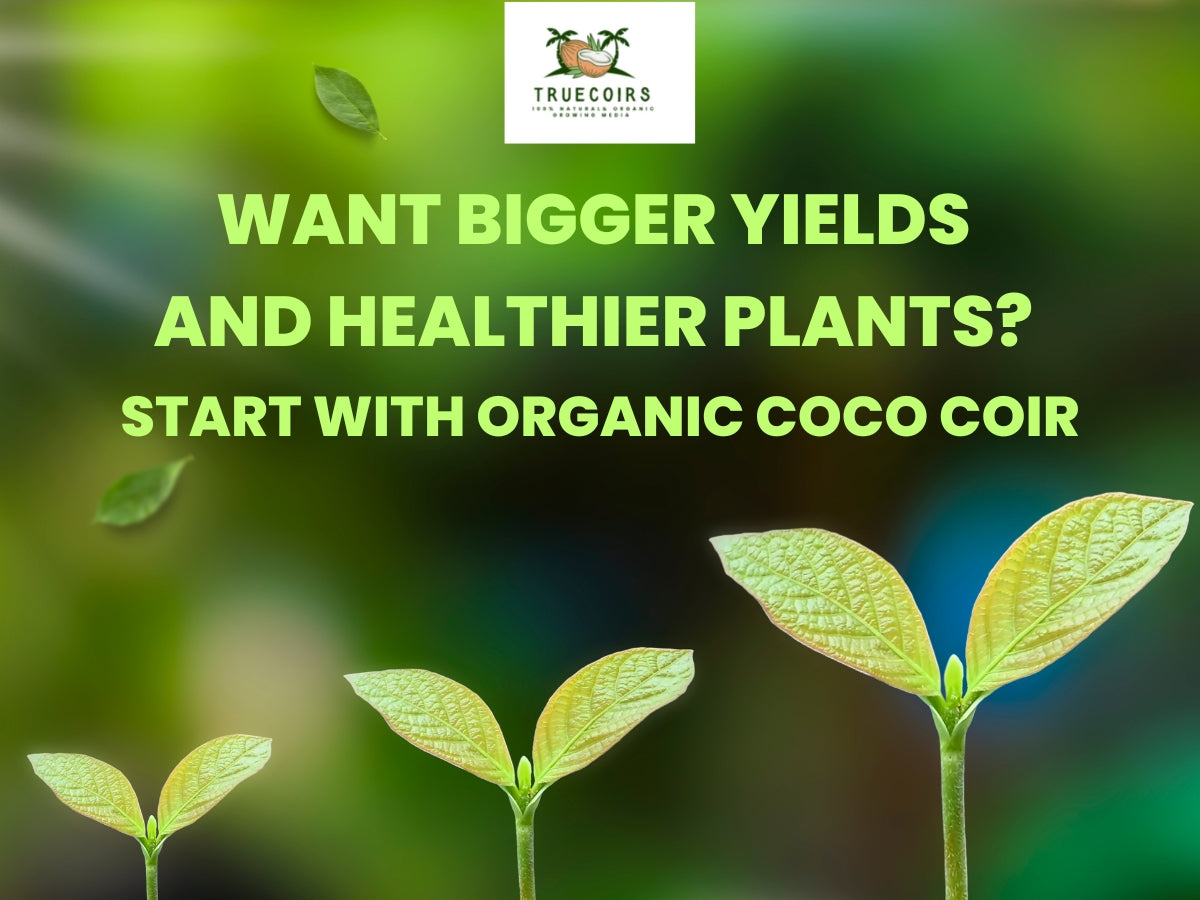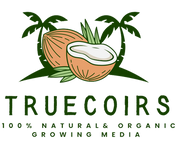Organic Coco Coir: A Beginner’s Guide to Growing Healthier Plants

Looking for the perfect organic medium to boost your garden’s health and yield? Whether you're buying in bulk or starting small, this guide to organic coco coir in the USA is packed with practical tips, product insights, and inspiration for growers of all kinds.
Why Read This Organic Coco Coir Guide?
-
Uncover the top uses of organic coco coir for gardening, seed starting, composting, and worm bedding
-
Compare different forms—bricks, blocks, discs, and poles—and know which suits your needs best
-
Learn why coco coir improves plant health, soil texture, and water efficiency
-
Get expert-backed buying tips for OMRI-certified, bulk and eco-conscious purchases in the USA
-
See how coco coir contributes to sustainable gardening, composting, and agriculture
Why Coco Coir is Taking Over U.S. Gardens
Tired of soil that dries too fast or holds too much water? Struggling with inconsistent plant growth? Enter organic coco coir—a sustainable, coconut husk-based growing medium that’s transforming how American growers start seeds, grow vegetables, and compost at home.
From the greenhouse to the backyard, coco coir is now a favorite among eco-conscious gardeners, indoor plant lovers, and farmers. Whether you're sourcing organic coco coir in bulk or trying coco peat for indoor plants, this guide walks you through everything you need to grow greener, better, and smarter.
What Is Organic Coco Coir?
Also known as coco peat or coco soil, organic coco coir is the soft, sponge-like material extracted from coconut husks. Naturally biodegradable, pH-balanced, and OMRI-certified, it's sterile, safe, and suitable for everything from hydroponics to worm bedding.
It’s available in bricks, blocks, discs, and more—each form expanding significantly when hydrated and delivering exceptional aeration and water retention to your soil.
Top Benefits of Organic Coco Coir
Retains Moisture Without Drowning Roots
Coco coir can hold up to 9x its weight in water yet drain efficiently—ideal for keeping your plants hydrated without waterlogging.
Improves Root Aeration
Its porous structure allows oxygen to circulate around roots, which helps plants develop faster and stronger.
Neutral pH and Sterile
With a pH range of 5.5–6.8, coco coir supports nutrient absorption and remains free from fungi or harmful pathogens—perfect for clean, safe gardening.
Renewable, Eco-Friendly & Peat-Free
Unlike peat moss, coco coir is a by-product of coconut harvesting—100% sustainable and gentle on the planet.
Boosts Soil Texture and Plant Yield
When mixed into soil, coco coir lightens compact clay, improves drainage, and enhances nutrient access. Reusable for multiple growing cycles.
Different Forms of Organic Coco Coir
Choosing the right form can amplify your results:
-
Coco coir Bricks & Blocks: Compressed 10 lb bricks expand to 75 L—perfect for bulk soil mixing or large-scale gardening
-
Coco Coir Discs: Ideal for seed germination—just add water and plant!
-
Coco coir Poles: Aesthetic and functional support for climbing plants like pothos or monstera
-
Coco Coir Loose Mix: Ready-to-use for potting or blending with compost
-
Coco Coir chunks: Chunky coir absorbs moisture and controls odor—excellent for vermicomposting
Want to compare options visually? Scroll down for our quick-reference table!
How to Hydrate Coco Coir in 5 Easy Steps
-
Place the brick/disc in a tub or tray.
-
Add 8–10 gallons of warm water to a 10 lb block.
-
Wait 30–40 minutes as it expands.
-
Break apart and fluff with hands.
-
Optionally buffer with calcium to reduce sodium content.
How to Use Coco Coir in Everyday Gardening
Gardening & Potting Soil
Mix 60% coco coir with compost or perlite. Great for vegetables, flowering plants, and houseplants.
Seed Germination
Use coco discs for clean, pest-free seed starting. The ideal base for seedlings to sprout fast.
Outdoor Grow Spaces
Topdress garden beds or blend into native soil to improve water management and root support.
Hydroponics
Acts as an inert, pH-stable growing medium—offers clean nutrient delivery with no soil mess.
Composting & Worm Bedding
Add to compost piles or worm bins. Coco coir helps control moisture, promotes microbial activity, and reduces odor.
Buying Tips: Choosing the Best Organic Coco Coir in the USA
-
Always Check for OMRI Certification: Ensures organic compliance
-
Low EC Rating: Look for EC below 0.9 ms/cm
-
Know Your Format: Use bricks for bulk, discs for germination, poles for support
-
Buy in Bulk: Save more with pallets of 10 lb blocks—ideal for farms or large gardens
-
Source Smart: Choose vendors like TrueCoirs offering factory-direct shipping across the U.S.
Want faster growth, healthier plants, and sustainable results?
Explore TrueCoirs’ premium coco coir collection—from compact bricks and coco discs to full-size 10 lb blocks—perfect for every grower. Order now with confidence and get it shipped directly to your garden!
Quick Comparison: Which Coco Coir Form Is Right for You?
|
Form |
Best For |
Expansion |
Notes |
|
Block |
Large gardens, bulk use |
70–75 L/10 lb |
Requires hydration and fluffing |
|
Brick |
Indoor plants, home use |
~9 L per brick |
Compact, easy to store |
|
Disc |
Seed starting |
Small plug size |
Great for germination trays |
|
Pole |
Climbing plants, decor |
N/A |
Stylish, biodegradable |
|
Loose Mix |
Potted plants, hydroponics |
Ready-to-use |
Often pre-buffered, no prep needed |
Conclusion: Grow Smarter, Greener & Cleaner
Organic coco coir isn’t just a soil replacement—it’s a smarter, cleaner, and more sustainable way to grow. With multiple forms, bulk availability, and clear environmental benefits, it’s no surprise that U.S. gardeners are making the switch.
Now’s the time to upgrade your garden. Stock up on OMRI-certified coco coir today and watch your plants thrive like never before.
Happy planting, and here’s to healthier roots, stronger growth, and greener gardens!
